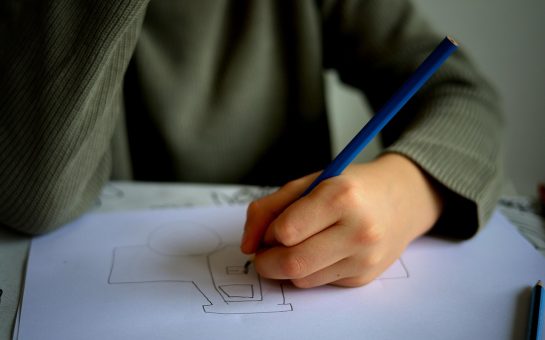It’s a tale with a familiar ring – a young man ventures up to Manchester, shoots to sporting stardom and earns the England captaincy.
But for the ‘David Beckham of kabaddi’, Vishal Ladwa, that is where the comparison to the recently-retired superstar ends.
Vishal won’t be paraded in front of the cameras or hounded by paparazzi, nor will his heroics on the field make a back-page splash in the papers.
In fact, only through the efforts of the 23-year-old and his teammates is the sub-continent sport played among British universities. It’s all a far cry from Manchester United.
A first-time spectator of kabaddi is likely to be equal parts baffled and amused. Within a rectangular theatre of battle, members of each team take turns to tag a wave of their hand-clasped opponents, who do their best to devour anyone who steps foot into their territory. Think Daniel and the lions’ den.
While all this ensues, the lone man must complete his attack in one single breath by chanting ‘kabaddi’ over and over again.
It may all sound alien, but to Vishal, the game holds the same kind of familiarity as the likes of football and cricket, having grown up sparring with his friends in Solihull.
“I liken it to a kind of physical chess,” he says. “It’s constant attack and defence, and while it can look brutal, there’s a lot of tactical stuff behind it – it’s a thinking game more than anything else.”
Kabaddi is no stranger to television, airing for a short spell on Channel 4 – which Vishal was transfixed by as a young boy – without igniting the interest of a British public already entrenched in its favoured sports.
This time round there is a feeling that genuine interest is not only creeping deeper into England’s Asian communities, but branching out into the country’s wider consciousness.
The current movement’s spark can be traced back to 2005 when Ashok Das, an ex-player born in Punjab who went on to set up the England Kabaddi Federation, integrated the sport into the British Army as a recruitment tool.
Combining strategic nous with the rough-and-tumble, a craze swept through the ranks so much that a team of women formed the basis of England’s national outfit – culminating in an appearance in the first-ever female Kabaddi World Cup last year.
Meanwhile, though Vishal left the West Midlands, kabaddi never left him. After choosing to study at the University of Manchester he and his friends rallied together a network of interested students to create a national league.
A triumph with his university against the men’s military side followed – which convinced Das to pave the way for a male national team.
“I don’t want to say he saw us as rough diamonds, but we were those kind of people who loved the game so much that we just needed that professional outlook and coaching ability to nurture our talent,” explains Vishal.
“One thing we had was passion and the ability, which is what shone through in our performance against the army.
“And when we paired up with Ashok Das, he brought more tactical elements and a more strategic element to it.
“Now it’s coming through which is great.”
Very much in an embryonic stage, England have been training for just five months and are yet to cut their teeth on an international level.
They were all set for the World Cup in India but the February Hyderabad blasts proved too sobering to risk travelling.
For now, the team hone their skills at their Aston University base, where the captain mucks in with assembling the judo mats and paying for the facilities.
St George’s Park it is not, but Vishal envisions a future in which kabaddi can press a serious case for an Olympic berth once full expansion of the international game is realised.
“The amount of teams is increasingly rapidly,” says Vishal, who will finally lead his team out against fellow start-up team Italy in July.
“It might be difficult to sustain and manage but we’re going to do the best we can to be part of the Olympics.
“The application process for the Olympics is around ten years, so maybe if it’s not in my era then hopefully it will happen for the younger generation.
“It’ll be great to see it there and we’re going to do everything we can to push it.”
Grand schemes are in the pipeline on a global footing but as its foremost exponent in England, Vishal insists it is his remit to spread the word on a national level.
Coming from an Indian Hindu background, he half-jokes that many parents from such a community steer their sons and daughters into becoming ‘lawyers, doctors and mechanics’. Sport is an option which slowly gets squeezed off the table.
But the main priority is developing an all-encompassing, all-inclusive national game – where people from not just all creeds but all physiques are confident enough to try their hand.
“It’s a bit tricky to spread the message but we are lucky with social media and the digital age,” he insists.
“Kabaddi’s one of those sports where you can a lot of great photos and videos of raidings, going into the opponents’ half and get points, tackles.
“You can show a snapshot or a five-minute video to friends and hopefully that piques their interest.
“We also want to take it into schools and make it a real alternative to traditional sports.
“You don’t need much equipment, nor do you need to be a 6ft 4 giant to play – I’m only 5ft 10 myself!
“Whether you’re small and quick you can play, whether you’re big and strong you can play.
“That’s the great thing about it – you can use your own personal talents and abilities to change the game.”
Vishal is no stranger to bold plans. On his CV reads a litany of organisations he has jumped into headfirst, including TedX, the Youth Diplomatic Service and the National Association of Young Leaders. All this on top of a fast-paced consultancy job in London.
The work ethic, he says, has been passed down from his father – a five-thirty each-morning man himself – and the dream is to throw all that drive into his own company.
He claims, however, that he is ‘no Mark Zuckerberg’. The Beckham connection will have to do for the moment.
“To get that comparison is great, he’s one of my personal role models,” says Vishal with an embarrassed chuckle.
“Just to be compared to him on a kabaddi level is a great honour and I’ll take it, it’s fantastic to be compared to that in a sport you’ve grown up playing. I’m honoured and privileged.”
He won’t depart amid the same raft of fanfare as Britain’s most famous sportsman when he eventually hangs up his kabaddi boots.
But whereas Beckham is just another layer of success for a sport draped in history, the chance is there for Vishal to lay the foundations for generations ahead.
Picture courtesy of Ranjit Atwal, with thanks.
For more on this story and many others, follow Mancunian Matters on Twitter and Facebook.



